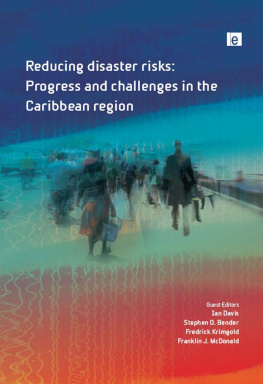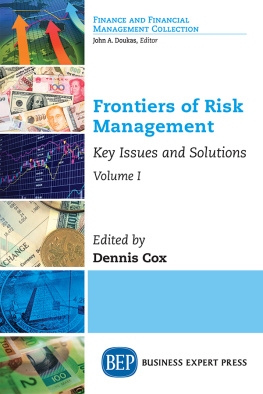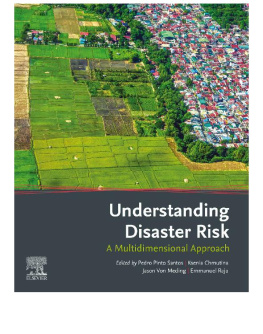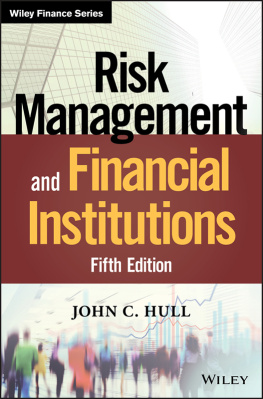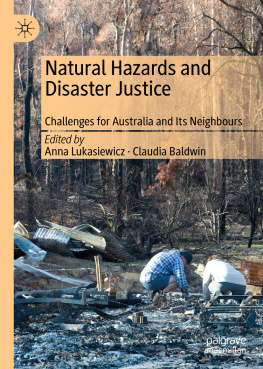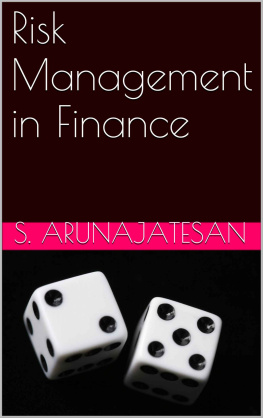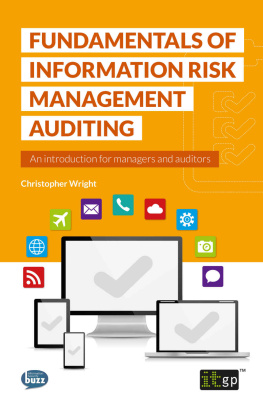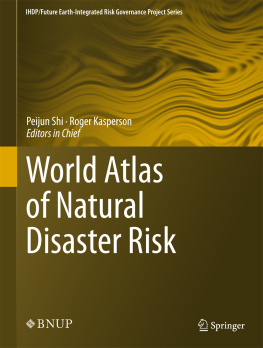ENVIRONMENTAL HAZARDS: Human and Policy Dimensions (EHAZ) is an innovative, interdisciplinary and international research journal addressing the human and policy dimensions of hazards.
The journal addresses the full range of hazardous events from extreme geological, hydrological atmospheric and biological events such as earthquakes, floods, storms and epidemics to technological failures and malfunctions such as industrial explosions, fires and toxic material releases. EHAZ is the source of the new ideas in hazards and risk research.
With a genuinely international perspective, this journal highlights issues of human exposure, vulnerability, awareness, response and risk. The role of hazards in development, and issues of efficiency, social justice and sustainability are also explored in the journal.
Well known conventional hazards receive extensive coverage but submissions about new forms of hazard, emerging risk management institutions and restructuring of ideas about hazards including their role in human affairs are particularly welcome.
Reinvigorating the debate about how we define, understand and manage hazards, the journal is interdisciplinary in scope and open to contributions by specialists from a wide range of fields who are interested in the effects of hazards events on people, property and societies.
Editor
Prof Edmund Penning-Rowsell
Flood Hazard Research Centre
Middlesex University
UK
E-mail: Edmund@penningrowsell.com
Editorial Board
Mr Stephen Bender
Organization of American States (Retired) USA
Dr Neil Britton
Asian Development Bank
The Philippines
Prof Ian Davis
Cranfield University
UK
Dr Kenneth Hewitt
Wilfrid Laurier University
Canada
Dr Allan Lavell
Latin American Social Science Faculty
Costa Rica
Prof Peter J. May
University of Washington
USA
Dr Burrell Montz
Binghamton University
USA
Associate Editor
Prof John Handmer
Centre for Risk and Community Safety
RMIT University
Australia
E-mail: john.handmer@rmit.edu.au
Dr Betty Hearn Morrow
Florida International University
USA
Prof Roger Pielke
Centre for Science and Technology Research
USA
Prof Boris Porfiriev
Russian Academy of Sciences Russia
Dr John P. Tiefenbacher
Texas State University
USA
Dr Juha I. Uitto
United Nations Development Programme
USA
Dr Peter Walker
Tufts University
USA
Dr Ben Wisner
Oberlin College
USA
Special issue:
Reducing disaster risks: Progress and challenges in the Caribbean region
VOLUME 10 ISSUE 1 2011
SPECIAL ISSUE
Environmental Hazards 10(1) March 2011.
Published by Earthscan:
2 Park Square, Milton Park, Abingdon, Oxon, OX14 4RN
711 Third Avenue, New York, NY 10017
2011 Earthscan
All rights reserved. No part of this publication may be reproduced, stored in retrieval systems or transmitted in any form or by any means, electronic, mechanical, photocopying, recording or otherwise, without written permission from the publisher.
ISSN: 1747-7891 (print), 1878-0059 (online)
ISBN: 978-1-84971-357-3
Responsibility for statements made in the articles printed herein rests solely with the contributors. The views expressed by individual authors are not necessarily those of the editors or the publisher.
SUBSCRIPTIONS
Subscription prices for Volume 10:
Institutions
Online only: | 255 $494 323 |
Online & print: | 273 $520 340 (airmail extra) |
Personal
Online only: | 99 $199 130 |
Print only: | 99 $199 130 (airmail extra) |
Orders can be placed online at www.earthscan.co.uk/journals/ehaz or sent to the journals distributors, Portland Customer Services, using the contact details below.
Post: Portland Customer Services, Commerce Way, Colchester, CO2 8HP, UK
Fax: +44 (0)1206 799331
Tel: +44 (0)1206 796351
Email: sales@portland-services.com
Abstracting services which cover this title include Elsevier Scopus and GeoRef
Environmental Hazards is published quarterly. Periodicals Postage Paid at Rahway, NJ. US agent: Mercury International, 365 Blair Road, Avenel, NJ 07001. POSTMASTER: Address changes to ENVIRONMENTAL HAZARDS, 365 Blair Road, Avenel, NJ 07001.
FRANKLIN J. MCDONALD
JEREMY COLLYMORE
KEITH FORD
ELEANOR B. JONES
ANDREW MASKREY
FREDRICK KRIMGOLD
RICHARD STUART OLSON, JUAN PABLO SARMIENTO and GABRIELA HOBERMAN
STEPHEN O. BENDER
IAN DAVIS
FRANKLIN J. MCDONALD
FRANKLIN J. MCDONALD12*
Disaster & Emergency Management Program, School of Administrative Studies, Room 204A, Atkinson Faculty of Liberal and Professional Studies, York University, 4700 Keele Street, Toronto, Ontario, Canada M3J 1P3
Disaster Risk Reduction Centre, University of the West Indies, Mona, Jamaica
* Email: franklin.jmcd@gmail.com
In December 2009, the Fourth Annual Caribbean Disaster Management Conference (CDM 4) was held in Montego Bay, Jamaica; it brought together after 25 years a group of persons who had previously participated in the 1984 International Conference on Hazard Mitigation that had taken place in Ocho Rios, Jamaica. Their rich discussions, dialogue and debate on progress made or not made; good, best and poor practice; and lessons learnt, unlearnt and still to be learnt have led to this volume.
A number of participants of that group have now collaborated in providing their thoughts and reflections on developments in the disaster management, risk reduction and hazard studies cluster over the last quarter-century. They have indulged in and shared some crystal-gazing into the challenges still awaiting resolution if human societies are to be safer, settlements more robust and economies more resilient in the coming decades.
Within a month of the December 2009 Conference in Jamaica, the tragedy of the Port au Prince earthquake in Jamaicas close neighbour Haiti began to unfold illustrating the need for renewed efforts to build on the good practices of the past and to address the complex linkages between risk reduction, governance, environmental degradation, poorly managed urbanization, poverty and capacity building at all levels of government.
The authors collection of observations, analysis, reflections, conclusions, speculations, opinions and recommendations presents a challenging composite of what has been achieved and what remains to be done!
These reflections seek to identify in an unvarnished fashion the questions that should be answered if progress is to be made in moving societies on to a more sustainable path, achieve resilience, institutionalize risk reduction and improve public safety. There is no pretension here that all questions are identified or answered, but this collection certainly offers a wide and hopefully stimulating range of issues and a framework for grasping the past lessons, tackling the present challenges and building the capacity for future success in disaster risk reduction beyond the Hyogo Framework for Action (HFA) 2015 aspirational date.

